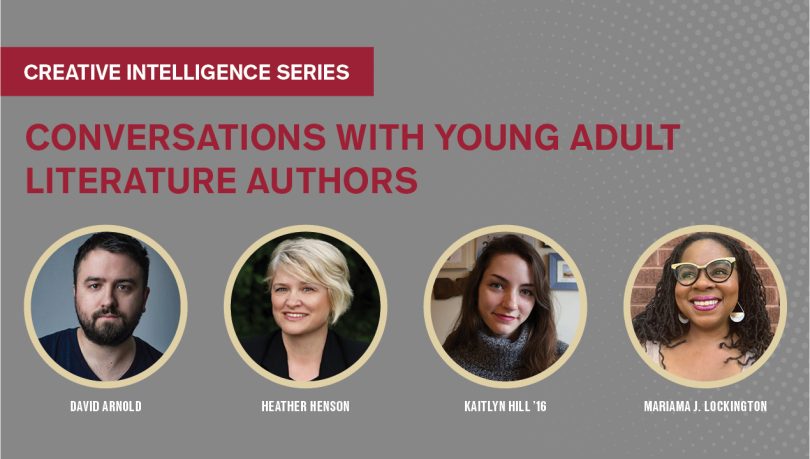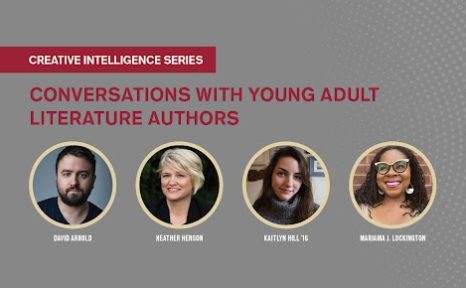
Transylvania University is gathering four successful young adult fiction writers for a discussion on “Stories and Myths of American Youth.”
Lexington-area authors David Arnold, Heather Henson, Kaitlyn Hill ’16 and Mariama J. Lockington will meet with students and then take part in a public panel Thursday, Nov. 3, at 7 p.m. in the Campus Center Pioneer Rooms. A book signing and sale will follow.
Discussion topics will include the craft and career of storytelling and fiction writing and how the arts and humanities offer powerful, necessary tools for living a good life.
“The panel brings diverse perspectives about various ideas and issues relevant to today’s youth culture and experiences,” said professor Amy Maupin, the moderator. “Local talent such as this needs to be celebrated and recognized.”
The event, which is part of the university’s Creative Intelligence series, stems from Maupin’s Literature for Young Adults education/English course. “Literature, including YA literature, is one of our greatest resources for understanding the human condition,” she said.
Young adult literature is typically written for and about youths aged 11-19 (although adults often enjoy the stories). “The plots, themes and settings are those familiar and related to the adolescent experience, so it’s common to read about home, school and social conflicts, as well as issues of identity and coming of age,” according to the class syllabus.
Next month’s event is a chance to help recognize the voices and stories of young people, who are often marginalized, Maupin said.
Additionally, it will draw attention to the value of the arts and humanities and showcase YA fiction writing as a possible career — an important one.
“Stories matter,” Maupin said. “Stories teach. Stories written for and about young people reveal universal themes and conflicts, but they also offer artistic merit and literary value.”

